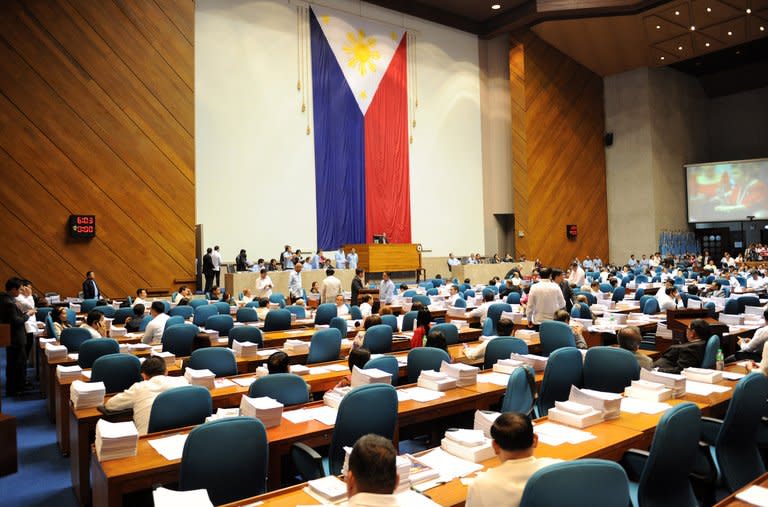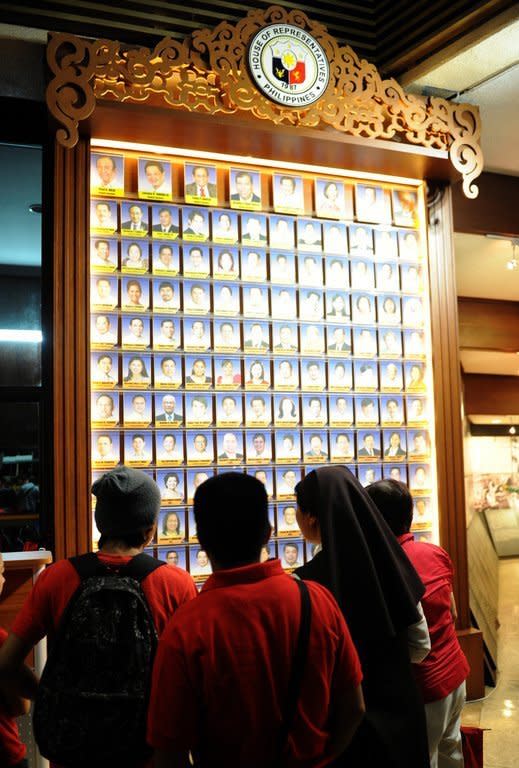Philippine bishops up in arms over birth control bill
Philippine Catholic leaders vowed Tuesday to overturn a birth control bill after lawmakers passed landmark legislation to make sex education and contraceptives more widely available. The Senate and the House of Representatives approved the Reproductive Health (RH) Bill late Monday, putting it on course to be signed into law by President Benigno Aquino within a week, after its final wording has been decided. Church leaders in the Catholic-majority nation, however, pledged to continue their fight against the controversial bill, with an appeal to the Supreme Court and a campaign to oust its supporters in general elections next year. Aquino has been pushing for the law, which its proponents say will help moderate the nation's rapid population growth, reduce poverty and bring down its high maternal mortality rate. The president thanked the legislators who voted for the bill, saying in a statement that "the people now have the government on their side as they raise their families in a manner that is just and empowered". But the politically influential Church, which effectively managed to block the legislation for more than a decade, says the bill would encourage pre-marital sex, destroy family values and foment violence against women. Bishop Gabriel Reyes said the Roman Catholic establishment would continue to urge the nation of 100 million people -- 80 percent of whom are Catholic -- to ignore the provisions of the bill once it passes into law. "We will tell Catholics 'even if you are given free contraceptives, do not use them'," he told reporters, adding that a group of Catholic lawyers was preparing to challenge the legality of the bill in the Supreme Court. Birth control is available already to those in the Philippines who can afford it, but widely out of reach for the very poor, particularly those living in rural areas and urban slums. The measure would stock government health centres, including those in remote areas, with free condoms and birth-control pills, while paving the way for sex education in schools and family-planning training for public health workers. The Catholic Church had managed to stall the legislation for more than a decade, cowing legislators and presidents by mounting huge protests and threatening to turn the public against them. But the two houses of Congress, with the support of Aquino, voted in favour of the bill after months of bitter debate, during which time some churchmen even threatened to have him excommunicated. Two lawmakers who had been staunchly opposed to the bill switched support in a surprise move, leading to the bill's passage with a comfortable majority. The Philippines has one of Asia's highest birth rates, with the United Nations estimating that half of the nation's 3.4 million pregnancies each year are unplanned. The government's Commission on Women said that maternal mortality also remains woefully high, with 162 deaths for every 100,000 live births, while 10 women die every day from pregnancy or childbirth-related complications.




